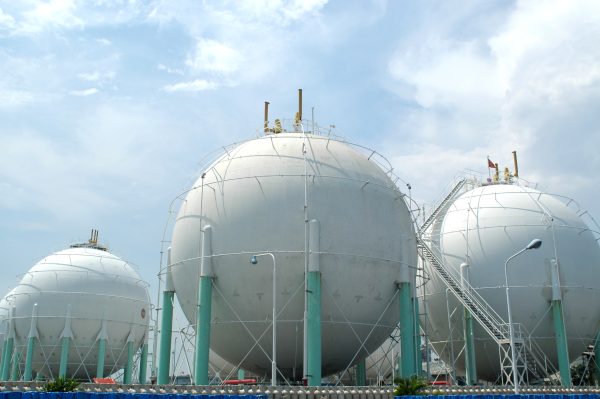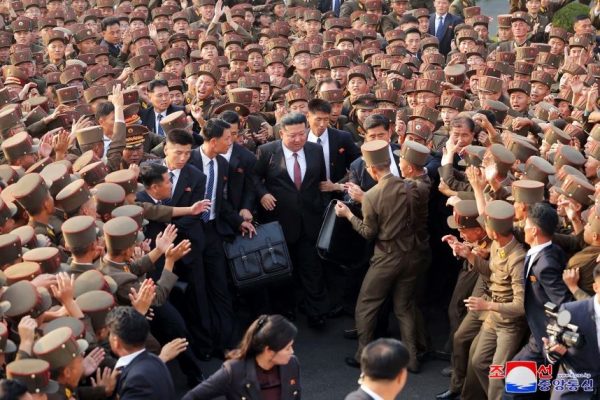Indonesia’s oil production, once a cornerstone of its export economy, has sharply declined over the years, dropping from a peak of 1.6 million barrels per day (bpd) in the 1990s to less than 600,000 bpd today. Similarly, its gas production has fallen to 6 billion cubic feet per day (Bcf/d). The government of Indonesia has set ambitious goals of increasing oil production to 1 million bpd and gas production to 12 Bcf/d by 2030. To achieve these goals, the government plans to simplify exploration permit processes, reactivate idle wells, and adopt advanced technologies.
However, reactivating idle wells and applying enhanced oil recovery techniques will not be sufficient alone. New exploration is essential to reversing the decline in production, as demonstrated by recent discoveries in the Geng and Layaran fields. Yet, Indonesia’s exploration attractiveness has waned in recent decades, with longer timelines and less favorable economics compared to more competitive nations like Guyana, Namibia, Suriname, Mexico, and Argentina.
To overcome these challenges, the Indonesian government needs to implement strategic reforms that foster large-scale exploration. This includes revisiting successful past practices and introducing policies tailored to a cost recovery regime that offers more appeal to investors than the current gross split model. The cost recovery system, which taxes profits rather than revenue, enhances investor returns and stimulates exploration activity. These reforms are essential for Indonesia to achieve its energy goals by 2030.
Indonesia’s oil and gas exploration sector is burdened by significant administrative and compliance challenges that hinder investment and delay exploration activities. These challenges can be addressed by simplifying regulations, improving efficiency, and aligning with global best practice.
One key area for improvement is access to exploration data. In countries like New Zealand and Australia, geological data such as seismic surveys and well logs become publicly available after a designated period. This open-access model allows investors to make informed decisions without waiting for government approval, which in Indonesia’s case would accelerate exploration timelines and boost investor confidence.
The issue of idle exploration acreage is another challenge. In Indonesia, large exploration blocks can be held for years without drilling, and producing blocks may not undertake exploration activities, which limits opportunities for new investors. Clearer regulations should be implemented to require companies to relinquish unused acreage, particularly in regions without recent exploration. This would create a more competitive environment and open up under-explored areas for new investment.
The current permitting process, which requires over 300 permits for exploration activities, often involving multiple ministries, is another bottleneck. Streamlining the permitting process and aiming for approval timelines of 60 to 90 days, especially for offshore wells, would create a more efficient system. A dedicated unit within the Ministry of Energy and Mineral Resources (MEMR) could coordinate the process, reducing bureaucratic delays.
The approval of SKK Migas, the government regulator, is also required for many procurement activities, which causes inefficiencies and delays during the exploration phase. Allowing investors to follow their own procurement procedures, especially during high-risk exploration, would accelerate activities and reduce costs. Additionally, relaxing the requirements for using Indonesian-flagged vessels and local drilling rigs would further simplify the process, enabling investors to source equipment and services internationally when needed.
SKK Migas regulates expatriate positions, reviewing them annually during the work plan and budget process. Contractors must submit manpower charts for approval, and expatriate costs are recoverable within a salary cap set by the Ministry of Finance (MoF). However, investors should have the flexibility to hire necessary personnel and offer competitive salaries without requiring Indonesian government approval or adherence to salary caps during the exploration phase. Local hiring requirements should be relaxed until a discovery is made and development begins.
Finally, Indonesia’s approval process for annual Work Programs and Budgets (WP&B) and Authorization for Expenditures (AFEs) should be streamlined. The current WP&B process involves close scrutiny of cost efficiency, even though only a small percentage of exploration projects progress to the development phase. Eliminating unnecessary cost reviews during the exploration phase and focusing on actual exploration activities, while relying on investors’ own WP&B and AFEs processes, would expedite progress. Moreover, the regulations surrounding the disposal of unused exploration equipment and relinquishment of Production Sharing Contracts (PSCs) should be revisited. Allowing investors to sell or re-export unused equipment to recover costs, and streamlining the relinquishment process for unsuccessful PSCs, would lower costs and make acreage available more quickly for new investors.
To drive investment in Indonesia’s oil and gas sector, fiscal and regulatory frameworks must be realigned with market conditions and investor needs. One critical reform would be to allow cost recovery for exploration activities outside the current “ring-fenced” fields. Investors should be able to recover exploration costs from other producing areas within the same PSC, at least for a limited number of wells. If direct cost recovery is not feasible, offering tax deductions for these costs could provide a financial cushion, enabling investors to explore new areas with greater confidence.
The Indonesian government should consider reinstating interest recovery for successful exploration projects that move into development. This practice, previously permitted with SKK Migas approval, has become less common under the current regulatory framework. Reintroducing interest recovery would provide a financial incentive for investors to engage in high-risk exploration ventures.
Making investment credits more accessible would be another important step, particularly for projects in remote or underdeveloped regions. These credits would offset a portion of the capital costs for developing newly discovered fields. Offering higher credits for gas development compared to oil would address the higher capital intensity of gas projects. These credits could be recouped from production once operating costs are covered, making exploration in challenging areas more financially viable.
Another important measure would be to expand the use of Domestic Market Obligation (DMO) holidays. These expanded holidays would allow companies to focus on export markets without the pressure of meeting domestic supply requirements. In regions with limited infrastructure, the government should permit gas producers to prioritize export markets if domestic demand is not feasible. Reducing or waiving DMO obligations in these areas, combined with additional incentives like larger investment credits, would mitigate the risks associated with developing remote fields and make them more attractive to investors.
The current fixed domestic gas price of $6 per MMBtu, unchanged for years, is increasingly misaligned with rising production costs, creating a barrier to investment. A more flexible pricing model based on actual production costs and market conditions would be critical for attracting exploration investment. A cost-plus pricing mechanism or tiered pricing for high-risk exploration projects could better align incentives, ensuring producers can cover their costs while still maintaining affordable prices for domestic consumers.
To enhance Indonesia’s competitiveness and attract more investment into the oil and gas sector, the government should revise the tax regime governing exploration activities. This would create a more favorable environment for exploration and stimulate greater investment in the sector.
One key reform would be to amend tax regulations on the sale and transfer of exploration interests. The current 5 percent tax on transfers is burdensome, especially in high-risk or remote areas, where partial interest transfers are often made before significant exploration activity has taken place. By removing this tax or delaying it until exploration activities advance to a development phase, the Indonesian government would encourage more investment and reduce unfair tax assessments.
Reintroducing the “assume and discharge” tax facility would also provide significant relief. Under this facility, SKK Migas would cover various taxes, including VAT and import duties, on behalf of investors. This would help eliminate non-recoverable costs like VAT during the exploration phase, making Indonesia more competitive compared to other countries offering similar incentives.
Allowing tax deductions for non-recoverable pre-PSC costs is another necessary reform. Investors often incur costs before a PSC is signed, such as joint study expenses, but these costs are currently non-deductible. Allowing deductions would align Indonesia’s tax practices with global standards, making exploration more financially viable.
A five-year tax holiday for PSC investors would further attract exploration investment. Although this would temporarily reduce government revenue, the long-term benefits would outweigh this, as production and government revenue would increase once exploration projects develop.
Finally, extending the branch profits tax reinvestment facility to oil and gas investors would encourage reinvestment in exploration activities. By enabling reinvestment of profits without incurring the branch profits tax, Indonesia would incentivize long-term investment in exploration, further revitalizing Indonesia’s oil and gas sector.
The core issue is not whether Indonesia is geologically appealing; investors universally agree on that. Instead, the concern lies in how, over the decades, the country’s government has reduced its investment attractiveness through policies and practices that are uncompetitive compared to other jurisdictions. Many of the proposed “game-changing” policies and practices designed to attract exploration investors are already familiar to both the Indonesian government and the investment community. These can be implemented without the need for new legislation or laws, requiring only revisions to existing regulations, decrees, and policies from MEMR, MoF, and SKK Migas.
By adopting some or all of these “game-changing” policies, Indonesia can attract more investment, accelerate exploration processes, and position itself as a more competitive destination for oil and gas exploration, transforming its 2030 targets from mere aspirations into achievable goals which will ultimately lead to more production and greater energy security.





















Discussion about this post